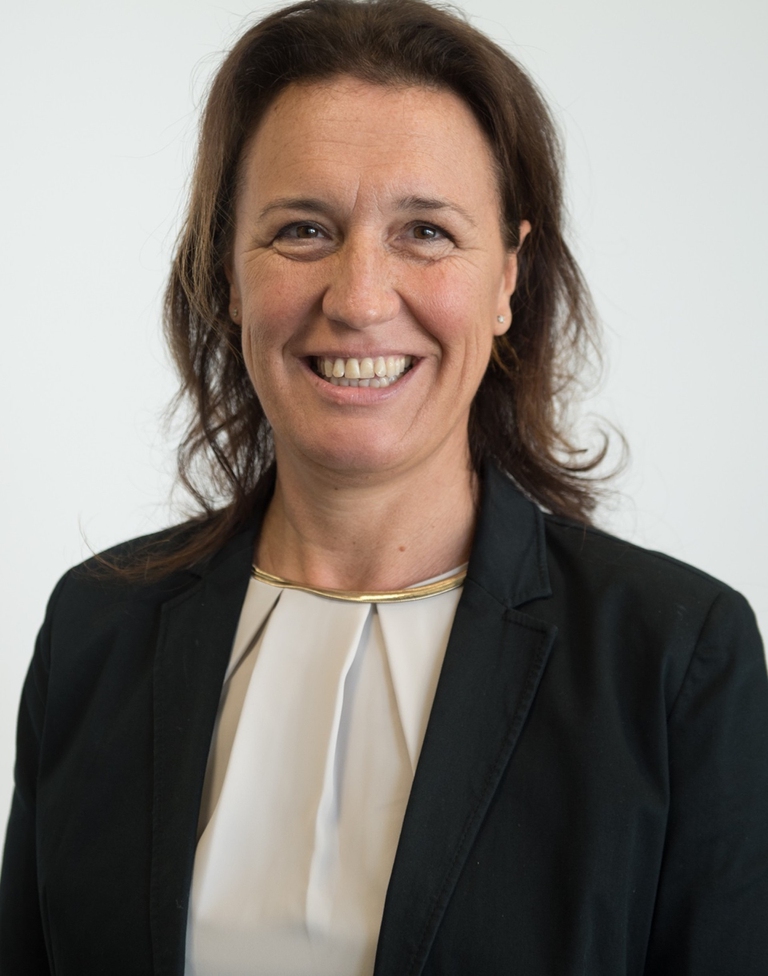https://www.lifegate.it/cinzia-bassi-barilla-women-in-action
- |
- Women in Action is a LifeGate Way acceleration program dedicated to female entrepreneurship.
- Among the companies supporting the project is Barilla, for which gender equality is one of its fundamental assets.
- Cinzia Bassi, director of the Barilla plant in Castiglione delle Stiviere, talks about the path that led her to become plant manager.
There are still a few days left to apply Women in Action, the acceleration program dedicated tofemale entrepreneurship supported by LifeGate Way, LifeGate's sustainable startup ecosystem, together with Twenty, an investment and consultancy company that aims to support innovative startups and small and medium-sized businesses.To access the program it is necessary to pass the selection process which will end theFebruary 8.From all the applications, a qualified jury will choose 16 who will participate in the Women in Action day, i.e. the final screening from which the five beneficiaries of the acceleration program:three existing startups, the best team of female students and the best team of new entrepreneurs.The three months during which the initiative will take place will have the ultimate aim of accompanying women in sustainable growth of their business, both helping them to perfect their business model and training the soft skills necessary to emerge.One of the sponsoring companies of the program is Barilla, a company that has always had gender equality as its fundamental asset, as demonstrated Cinzia Bassi, director of the Castiglione delle Stiviere plant.
The importance of soft skills and female leadership
“I believe that women should be supported especially in soft skills, because often the sense of inadequacy it is very strong in the female gender:it is inherent in our nature even when the context doesn't ask us to, we take for granted that we have to demonstrate something more", he tells us.Bassi is the recipient of many CVs and periodically holds job interviews with those who apply to Barilla:“We women apply for a new role only if we are 100 percent certain that we have the requirements to fill it, maybe a man is 50% sure, but he tries anyway.Sometimes when doing interviews I notice a greater lightness in the male gender, a lightness perhaps given by having always lived in one privileged condition.It very often happens to me, with the same CV, or with lower CVs in terms of experience, that I notice how the man is more confident.I therefore believe that this kind of paths, initiatives and mentorship have a huge influence even just on making us perceive the real value of ourselves.The other thing I think is useful to work on is leadership style:everyone has their own and, in my opinion, we women must not give in to the temptation to imitate that of men.The temptation to show oneself with masculine attitudes to be recognized in that role is unfortunately still very strong;avoiding these biases is the best way to create a more fair and inclusive labor market and to encouragefemale employment.

Cinzia Bassi, a career at the top of Barilla
Cinzia Bassi she graduated in mechanical engineering in 1999 and today, after 24 years in the company, she is plant manager, that is director of the plant productive of Castiglione delle Stiviere dedicated to biscuits and crackers.In the universe of Barilla products it is considered the flagship of bakery, that is, of all baked products (pasta and sauces are part of the "meal solution" sector).“The pack of Pan di stelle you buy at the supermarket, for example, is made under my responsibility.I supervise the 330 people who work in the plant, taking care of their safety, but also of the quality of the product and the investments that must be planned.The technical area, the quality and technology area, the production area and the warehouse and raw material supply area, the environmental safety and energy area, the improvement area and the human resources area report to me.Below the various managers there are the shift leaders and the workers, the warehouse workers and those who work in the technical area".
A role, that of plant manager, which has reached the culmination of a journey that has seen her make unconventional choices...
At the end of the nineties, mechanical engineering, like all other STEM (science, technology, engineering and mathematics) faculties was very little attended by girls.I remember that on the campus bus all the girls got off for chemistry, pharmaceutical chemistry or biology;I was one of the few who got to the last stop, which was engineering.
Do you think that being a woman in a traditionally male study path has discriminated against you in some way?
To tell the truth, it wasn't a problem studying with male colleagues.However, I remember the amazement of certain elderly professors who, when writing my grade in my booklet, asked me why I had chosen engineering.Well, it was from those situations that I understood that I had made an unusual choice for the time, the same question was never asked to my male colleagues.Some even added:“Didn't you know it was difficult?”

And once you joined Barilla?
At the time the company was looking for an intern to do work on preventative maintenance of a production line:I am still grateful to the colleague who chose me, going against the trend.I must say that my career in the company was not affected by any type of gender inequality:I was the first female plant manager in Barilla but, twenty years ago, I was also the first female production manager in a southern factory, in Melfi.
And how did it go?
I found myself at a very young age managing nine male shift managers, senior in both age and experience.Let's say that, on paper, it wasn't a particularly favorable astral situation, but in reality I always felt supported by the company.The establishment has particular dynamics and clearly, for nine men, being managed by a young girl from the north could present some complexities.However, these people have always had the ability to have a lot of trust in the people above me who had entrusted me with that role.The plant, as an organization, is very pragmatic:he thinks according to the scheme of “Either you are useful to me and you function, or you are not useful to me and I isolate you”.This happens at all hierarchical levels of the plant, regardless of gender.
Did they never try to get her into trouble?
Certainly among those nine male shift managers there were those who wanted to put me in difficulty, but they would have done the same with the new male engineer.In those situations they want to make you pay not so much for a gender difference, but for managerial inexperience tout court.
Have you seen a change in the presence of women in the company in 24 years?
Yes, especially on the front lines of the plant, those who report directly to me:twenty years ago women in this position were mainly in the human resources area or in the quality control world, perhaps because they had a background in biology or food science.Today I manage a team where there are four women and, of the six Italian bakery factories, three are managed by women, while for ten years I was the only female director.

